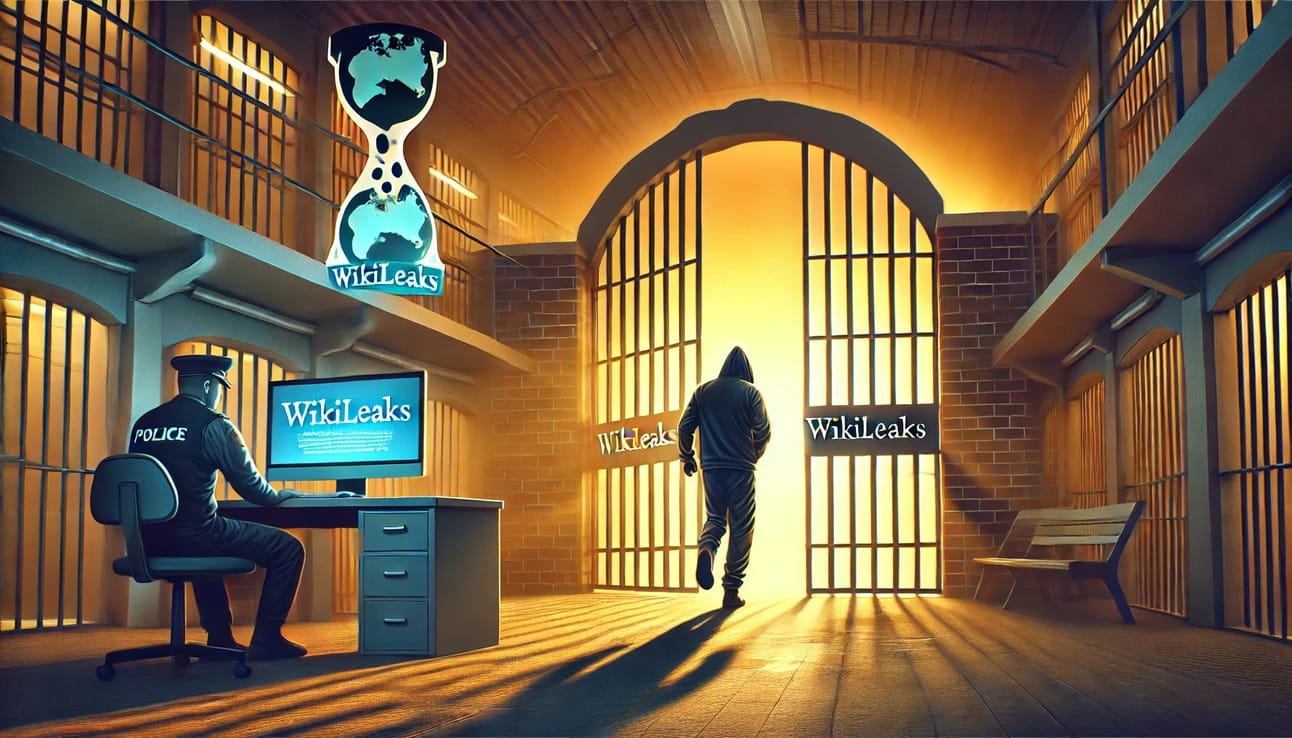
CYBER SYRUP
Delivering the sweetest insights on cybersecurity.
Julian Assange Freed From The UK

Julian Assange, the founder of WikiLeaks, has been released from a maximum-security prison in the U.K. and has left the country. This marks the end of a more than five-year imprisonment and a 14-year legal battle that has drawn global attention. Assange, 52, had been serving time at Belmarsh Prison, accused by the U.S. government of orchestrating the "largest compromises of classified information" in its history.
Who is Julian Assange?
Julian Assange is an Australian journalist, publisher, and activist who founded WikiLeaks in 2006. WikiLeaks is a non-profit organization that publishes classified, censored, or otherwise restricted information. Assange gained international notoriety for his role in releasing a massive trove of confidential U.S. military and diplomatic documents, which exposed various war, spying, and corruption activities globally.
What Did He Do?
Assange's most significant contribution to the public domain came from the release of more than 10 million documents. These included military field logs from the wars in Afghanistan and Iraq, diplomatic cables from the U.S. (Cablegate), and information about detainees at Guantanamo Bay. One of the most controversial releases was the Vault 7 and Vault 8 documents, which detailed cyber warfare and surveillance tools allegedly created by the U.S. Central Intelligence Agency (CIA).
The U.S. Department of Justice (DoJ) has claimed that Assange's actions risked serious harm to U.S. national security, benefiting adversaries and putting unredacted named human sources at grave risk. In 2019, the DoJ accused Assange of conspiring to obtain and disclose classified U.S. national defense documents.
Why is This Big News?
Assange's release is significant for several reasons:
Legal Precedent and Media Freedom: Assange's case has been a focal point in discussions about press freedom and the right to publish information in the public interest. His supporters argue that WikiLeaks' releases were essential for transparency and accountability, while critics contend that the leaks endangered lives and national security.
International Relations and Cybersecurity: The documents published by WikiLeaks revealed sensitive information about various countries' military and intelligence operations. This has had far-reaching implications for international relations and cybersecurity policies worldwide.
High-Profile Legal Battle: Assange's legal saga involved multiple countries and legal systems, including the U.K., Sweden, and the U.S. His case has been a complex and high-profile legal battle that has captured global attention.
Conclusion
Julian Assange's release marks a significant moment in the ongoing debate over press freedom, cybersecurity, and international relations. As governments and organizations navigate the complexities of cybersecurity and the ethical implications of information disclosure, it remains crucial for individuals to stay informed and take proactive measures to protect their digital security. Assange's case will continue to be a reference point in discussions about the balance between transparency, security, and privacy in the digital age.